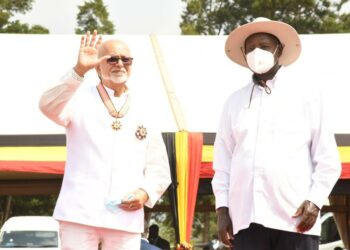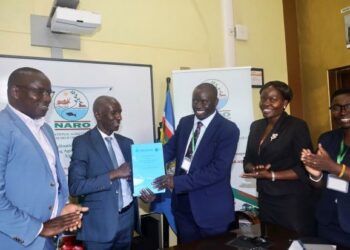By Ruth Walusimbi
Mbale district faces a challenge of increasing cases of teenage pregnancies due to cultural practices, alcohol and drug abuse.
Dr. Jonathan Wangisi, Mbale District Health Officer says the district average prevalence for teenage pregnancies stands at 22% up from 18 % in the last one year. At this rate the current percentage may surpass the national teenage pregnancy average of 25% according to the National Demographic survey for 2019/ 2020.
He says the rate at which more children are produced by teenagers since 2020, is worrying communities in Mbale district.
“Young people are tempted into sexual relationships because of their vulnerability when not in school, poverty and cultural practices like “Imbalu” in “Mutooto circumcision site” where girls go to witness with good intentions, but boys end up raping, defiling them. Some get pregnant, ” Dr. Wangisi, says while demanding for collective interventions to ease a rise in the cases of teenage pregnancies in Mbale district.
Among the most affected areas include Bungokho, Wanale, Buybyangu, Jeewa, Bufumbo and Budwale sub counties that are peri – urban and urban influenced by religious and cultural factors.
At least 83% of parents in Mbale district find it difficult to stop the teenage pregnancies and early marriages, and are worried about the rate of teenage pregnancy as the country battles the coronavirus pandemic according to a survey released by Hope Mbale a Civil Society Organization in July 2021.
The research findings presented to the Ministry of Health indicate that eight out of 10 young girls in Mbale were impregnated and this has become a bigger problem during the Coronavirus pandemic. A research conducted by Hope Mbale between January and July 2021 showed 75% of school going girls gave birth or are pregnant in Mbale. Industrial division, in the villages of Musota and Maluku, Namataala and Namakwekwe are the hotspots in Mbale City.
Hope Mbale’s survey was done in peri – urban and urban areas of Mbale district. The findings reflect concerns around the district during the lockdown period since January 2021.
Marion Apio, a Monitoring and Evaluation Officer at Hope Mbale says citizens according to the survey report an increase in alcohol consumption (64%) and drug abuse (61%).
But Jackson Chekweko, Executive Director Reproductive Health Uganda (RHU) says that with the help of funds from Netherlands Ministry of Foreign Affairs, under the Right Here Right Now (RHRN) project, together with Mbale district administration and other partners, several sexual and reproductive health rights (SRHR) sensitization camps among youths will be conducted in the next five years.
The sensitization will entail advocacy for better youth environment and policies to access SRHR, health education, counselling, cervical cancer screening, HIV/AIDS testing and enrolment to family Planning for those who are sexually active and don’t want to get pregnant among other things.
“In order to ease the teenage pregnancy, early marriages problem with the support of Netherlands Ministry of Foreign Affairs, we are going to strengthen Civil Society Organizations, district leadership to conduct SRHR trainings targeting teenagers, young people, girls and the policy makers in Mbale district, ” Chekweko says.
Paddo Edirisa, a youth focal person in Mbale district says several factors lead to teenagers getting pregnant in Mbale district. The COVID 19 pandemic and lockdowns, staying at home and peer pressure.
He also cites cultural and some religious beliefs and practices, and that some young girls lured by materials incentives by men in the communities, some girls learn promiscuity in the communities at home and transfer it to others, while some girls are often caught off guard after parents send them to vend merchandise at trading Centre’s in the evenings.
Robert Ocaya, RHRN National Coordinator says the five year project will be conducted in districts of Mbale, Kapchorwa, Kween, Kabalore, Kasese and Kampala where youths SRHR’s not easily accessed.
Do you have a story in your community or an opinion to share with us: Email us at editorial@watchdoguganda.com












